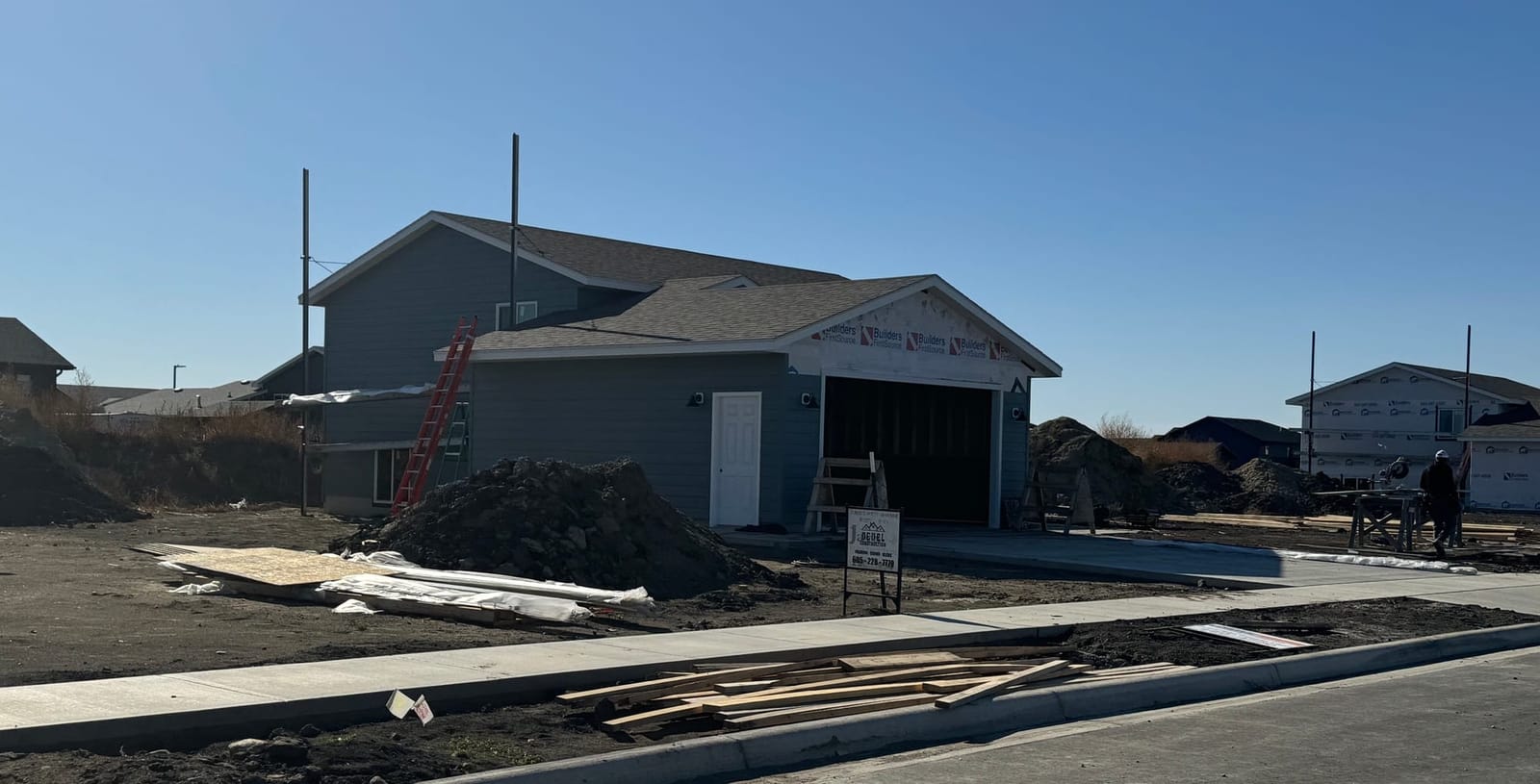ABERDEEN, S.D. – A 20-year-old nonprofit that restores old homes and builds new ones to create affordable housing in Aberdeen is sharing its playbook with other South Dakota cities that also lack housing.

Homes Are Possible Inc., or HAPI, uses a mix of public grants and private donations to fuel three separate housing programs that:
- Provide grants to income-qualified homeowners to fix up their houses
- Buy lots and build homes to replace aging or abandoned houses that are torn down
- Acquire land and develop subdivision infrastructure so HAPI and private construction companies can build homes there.
Darin Beckius, executive director, said almost everything accomplished under the HAPI model has been a team effort in Aberdeen, a city of 28,000. That includes working closely with construction contractors, home builders, lenders, property owners and local government agencies that promote residential and commercial development.
"When I look at why HAPI has been so successful, it comes down to partnerships," he said. "With the folks at the city, the development corporation bringing businesses in, with HAPI providing housing, it all kind of fits together into one puzzle that makes the city sustainable and a good place to live."
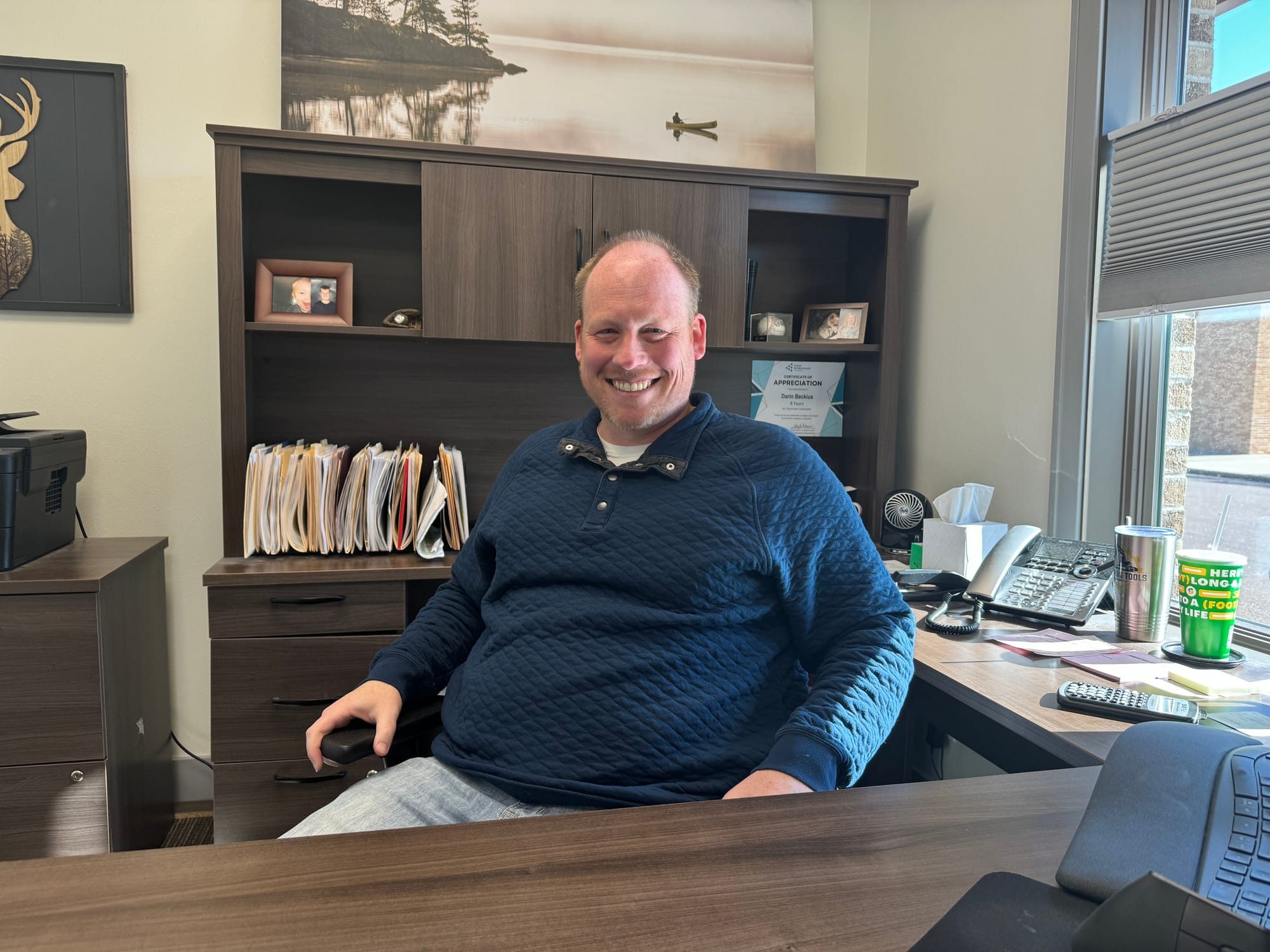
Over the past two decades, HAPI has helped hundreds of low-income homeowners obtain grants up to $20,000 to fix up their properties. It has built more than 70 "infill" homes on lots that once held aging homes or trailers that fell into disrepair and had to be torn down. And in its crowning achievement, the group has developed two complete subdivisions and is working on a third that will result in construction of nearly 600 new homes.
HAPI uses tax increment financing, or TIF, districts to develop the infrastructure in the subdivisions and has paid contractors to build about 250 of those new homes, while the rest have been built by private developers.

By working on numerous housing projects at once, and getting tax-deferred loans for infrastructure, HAPI can keep costs down and home prices around $260,000, compared to $400,000, he said.
"The people you want to move in, the teachers, the nurses, whomever, they’re not capable of building a house on their own," Beckius said. "But that’s where we’ve been successful because we’re not only the developer, we’re also the builder. And that’s just part of the process to getting them into homes."
Spreading knowledge on home development
Over the years, Beckius said he and the former HAPI director have established a track record of helping other smaller communities learn their methods and to adopt the HAPI model, including in other northern South Dakota towns such as Herreid, Groton and Mobridge.
About three years ago, HAPI took the sharing to a new level when it used some of its own staff time and financial resources to help repair or develop new homes in Mitchell, about 150 miles to the south.
A group of people interested in alleviating the housing shortage in that city of 15,600 called HAPI to ask for help in developing a 20-acre site that had been gifted from a landowner. Beckius said he and the former HAPI director traveled to Mitchell monthly to share knowledge and give advice.
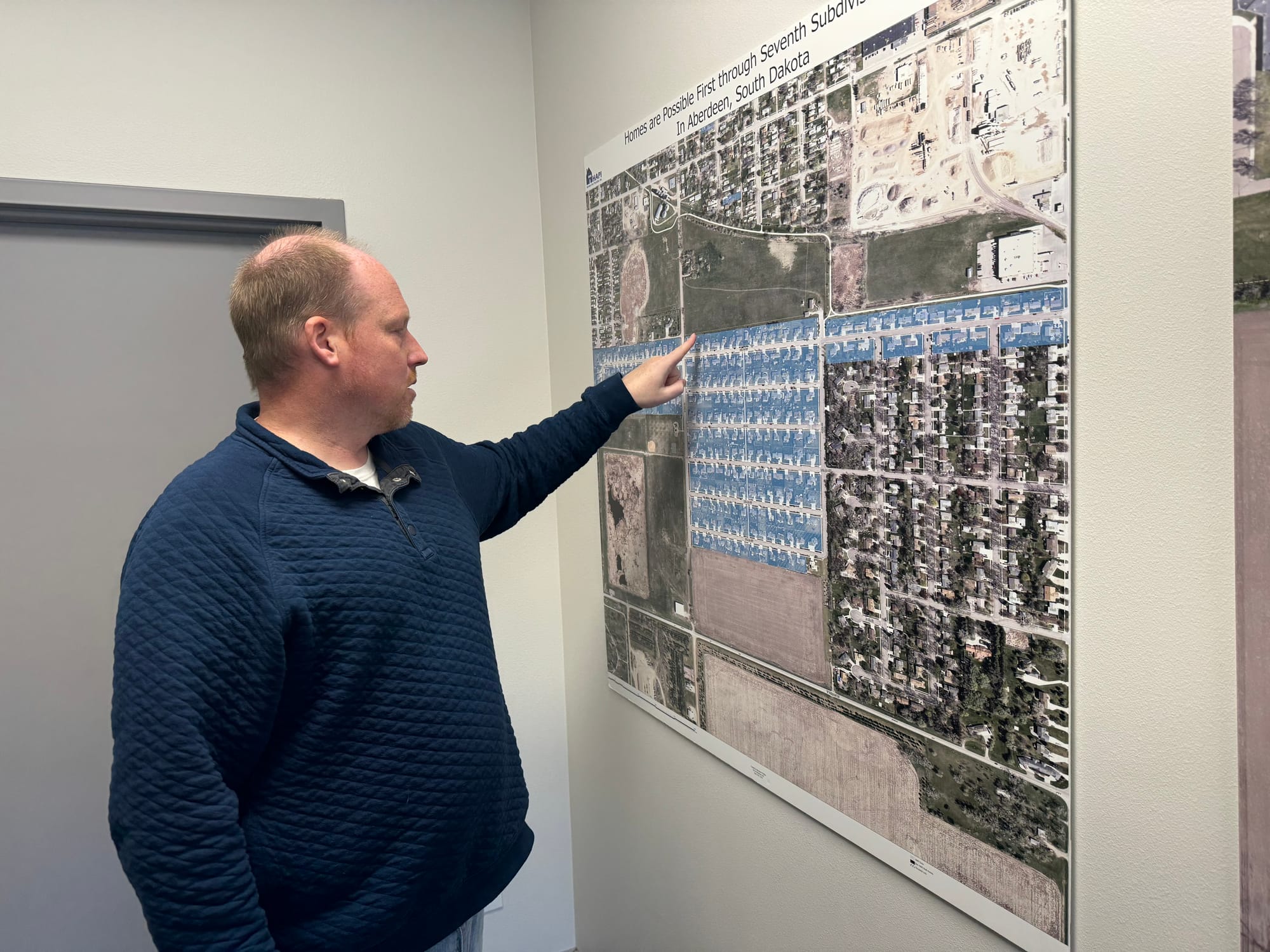
"We would go and meet with their group and listen to what they were discussing and giving them our playbook almost, giving them answers about what we did wrong so they could avoid the big mistakes we made," Beckius said. "We really wanted to try to jumpstart their efforts. And you basically took 10 years off HAPI's timeline of figuring out how things work, and they could skip all that and be a decade ahead right off the bat."
The sharing of knowledge and expertise and the kickstarting of housing efforts in other communities is one example of how municipal leaders can share possibly replicable solutions that can spread from one South Dakota city to another.
Highlighting such efforts is also part of the goal of the Engage South Dakota pilot program launched this year by South Dakota News Watch and the Chiesman Center for Democracy at the University of South Dakota.
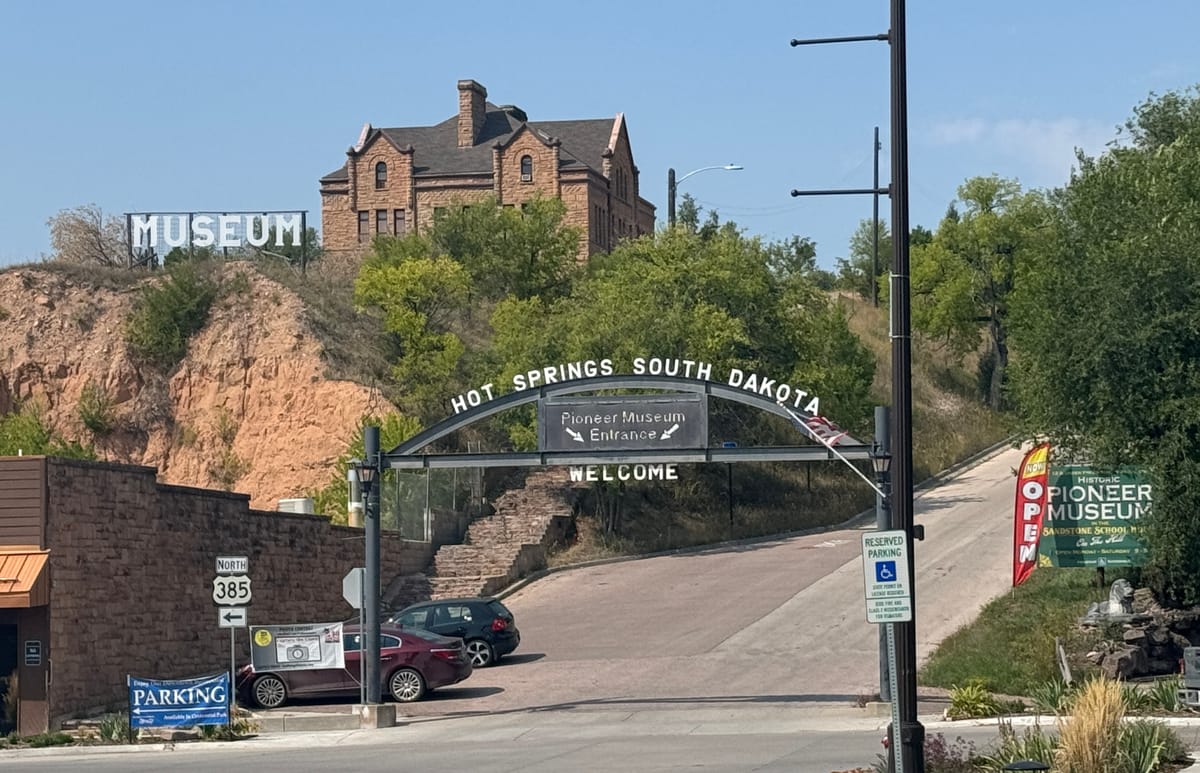
Beckius and his staff of three are an example of how an idea or program that is successful in one community can be replicated in another, helping to solve some of the biggest challenges facing municipalities across the Rushmore State.
"I get phone calls all the time from communities saying, 'Will you come and talk to us about what you're doing in Aberdeen?'" Beckius said. "I always tell them, 'I can't come and do the work for you, but I can certainly show you how.'"
Making progress on housing in Mitchell
Terry Sabers has no hesitation in giving credit to HAPI when it comes to the grand plans and recent actions taken by Mitchell Area Housing Inc., or MAHI, the organization Sabers now leads.
A housing study showed that a third of existing homes in Michell needed major repairs. And the city needed additional housing to accommodate employment growth that includes ongoing construction of a $500 million grain processing plant just south of town.
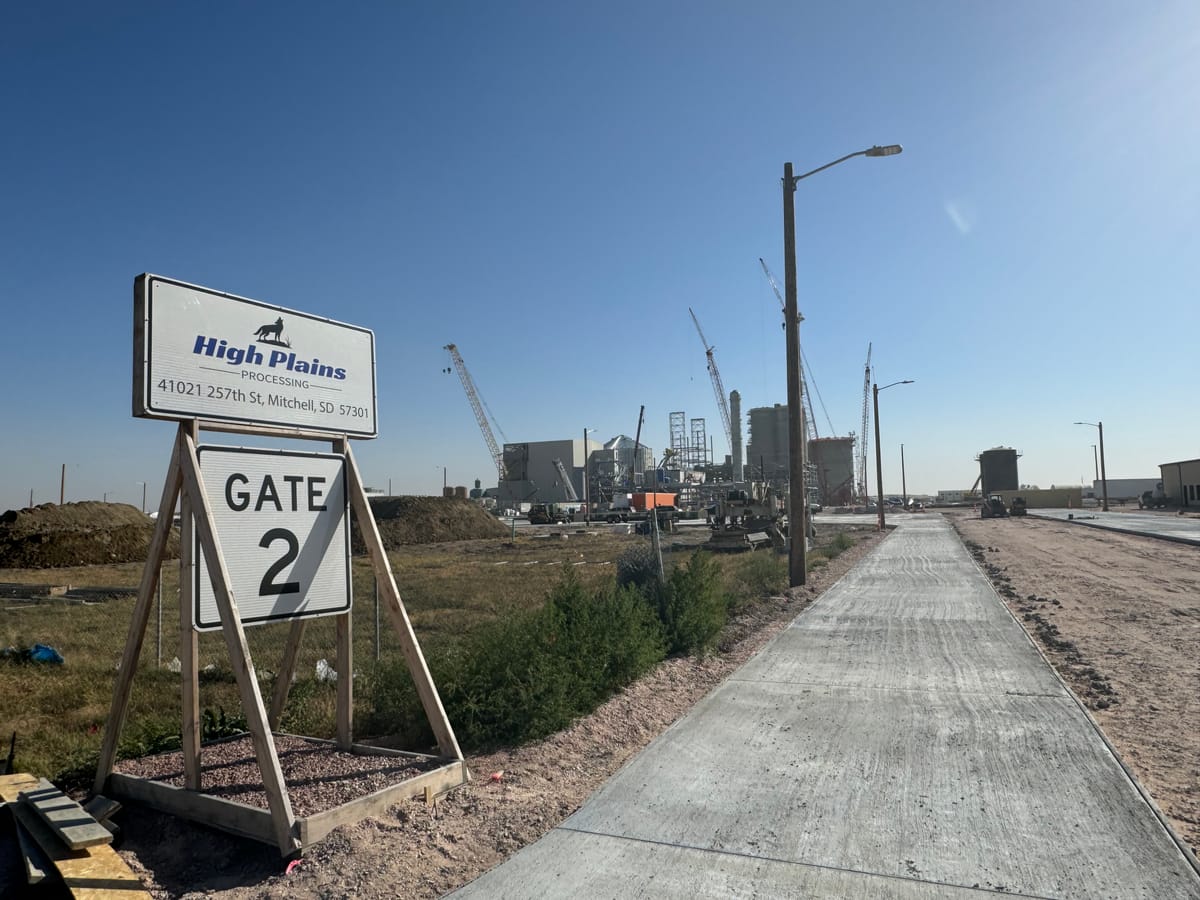
As Sabers and other local officials contemplated how to move forward, he recalled a meeting with HAPI representatives several years ago and gave them a call.
"We asked if they could come down here and guide us for about six months," Sabers told News Watch. "They came down and we basically copied what they were doing."
So far, the model has worked well in Mitchell.
Over the past couple years, MAHI acquired grants of about $550,000 that it used as grants to help 27 homeowners fix up their homes. MAHI has bought, torn down and replaced four houses in Mitchell that were in major disrepair. And now it's using the HAPI model by partnering with the local development corporation to develop its own subdivisions.
MAHI has obtained TIF financing and funds from the state agency South Dakota Housing to develop about 80 affordable homes on two parcels of land it was gifted by the local hospital and a landowner. Sabers said he hopes the organization can build about 10-12 homes a year that sell for $300,000 or less.
The process, Sabers said, is challenging on many fronts and was made more difficult and costly when interest rates suddenly doubled over the past two years. But the efforts to improve existing housing and build new are gaining steam in Mitchell, Sabers said.
"Everybody has a problem with housing in South Dakota," he said. "We're just taking a more aggressive approach to fixing that."
Regional activity in housing picks up
Just as it did in Aberdeen, the momentum to repair existing homes and build new ones in Mitchell is spreading to nearby smaller cities and towns, said David Lambert, regional development director for the Mitchell Area Chamber of Commerce.
The need for more housing, especially affordable homes, is present in cities and small towns across South Dakota. And housing development is increasingly being pursued by local governments or nonprofit groups like HAPI and MAHI, Lambert said.
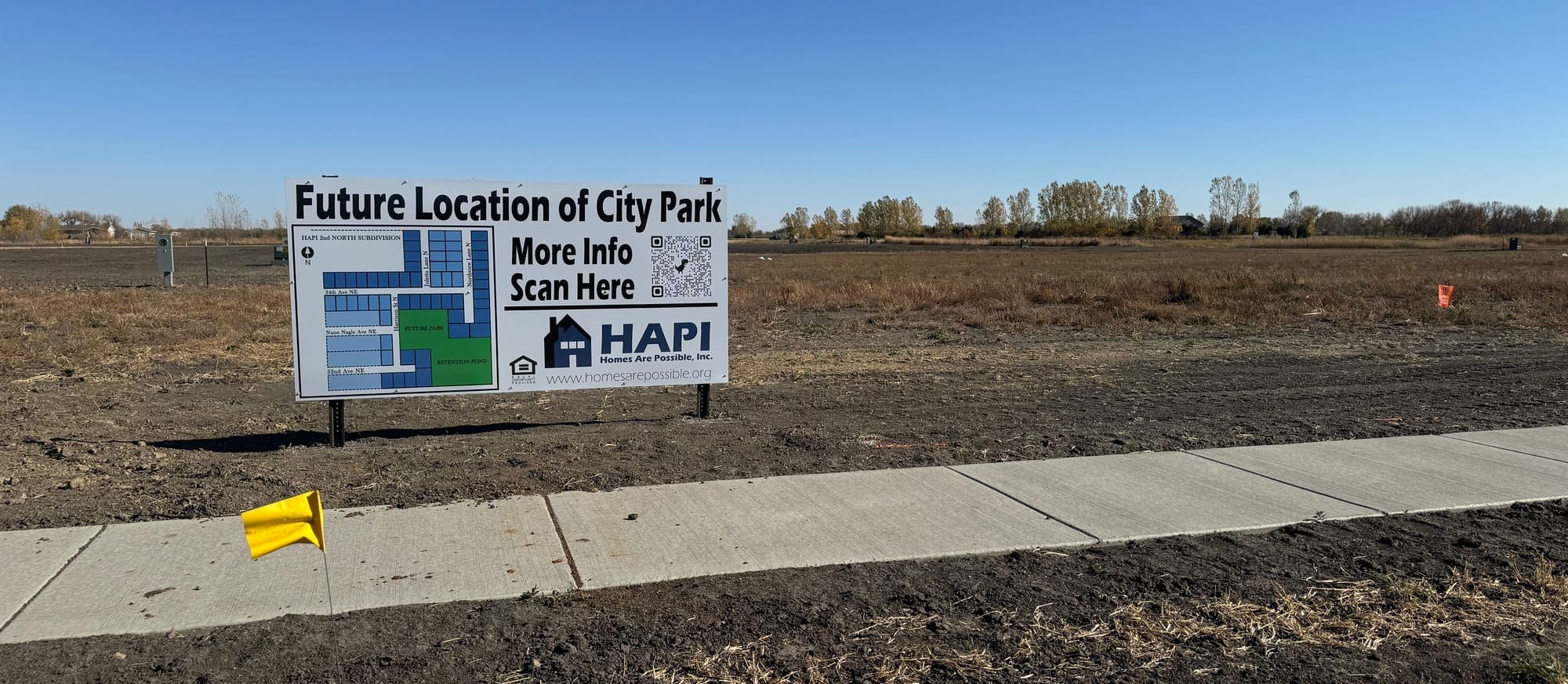
"It’s critically important because workforce and housing go hand in hand," Lambert said. "For example, with 75 new jobs coming on board from the soybean plant in Mitchell, those folks have to live someplace."
Lambert said new housing efforts are taking place in several municipalities surrounding Mitchell, including White Lake, Tripp, Corsica, Parkston, Plankinton and Armour.
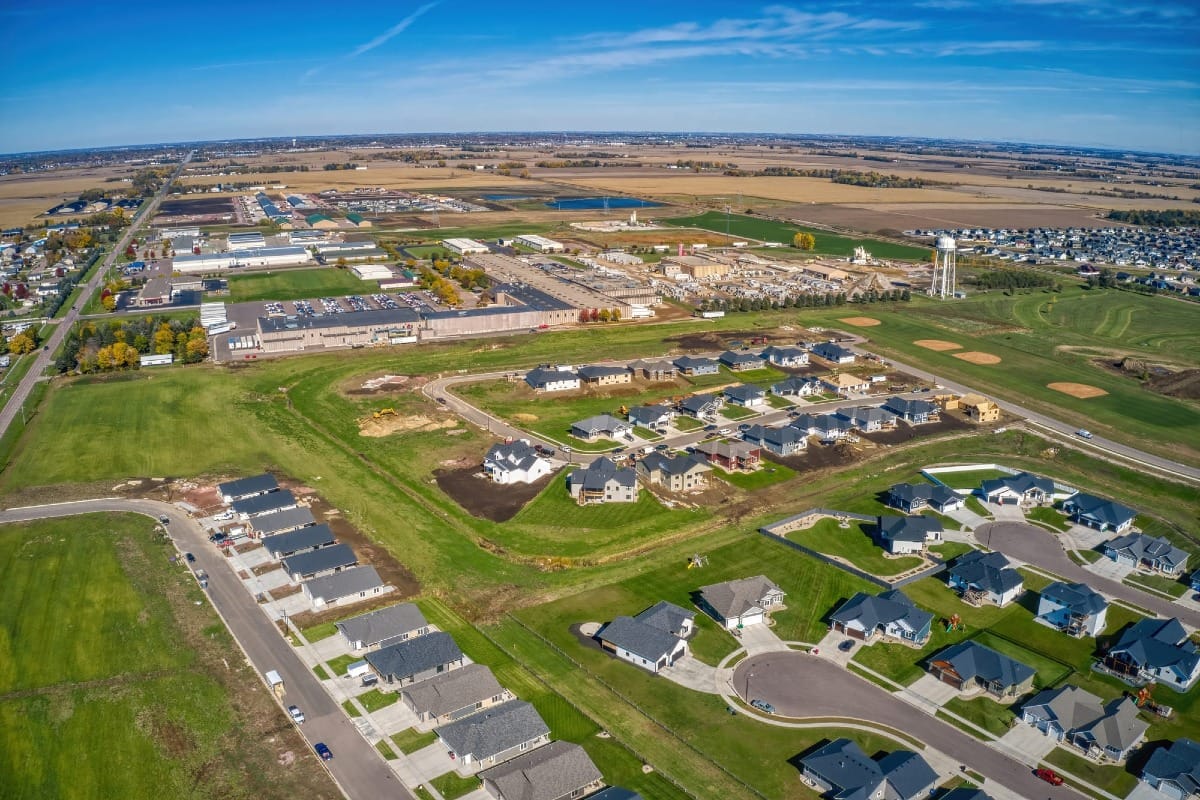
"Every community is trying to tackle it in their own way," he said. "It's not just the affordability component that is important. But the reality is also trying to figure out how to have a mix of single-family homes, duplexes, apartments and workforce housing."
More housing = more jobs
Ken Hubbart, Aberdeen community development director, said HAPI's successful track record of developing subdivisions and building new homes has indirectly helped create opportunities for job creation and economic growth.
“Most employers, when they’re looking at opening a new business or expanding an existing business, one of the things they look at is availability of housing for their employees,” Hubbart said. “So HAPI has allowed for a lot of commercial or industrial development to occur over the years.”

Hubbart said HAPI provides critical services that not only help individual families obtain homeownership but which also raise the quality of the overall housing stock in the city.
“When unsalvageable housing is torn down and they put in something nice, you start to see a turnaround in that neighborhood,” he said. “It has a rebounding effect on those neighborhoods.”
Contacts in Aberdeen and Mitchell
Homes Are Possible, Inc.
Darin Beckius, executive director
125 South 2nd Street, Aberdeen, SD 57401
(605) 225-4274
Mitchell Area Housing, Inc.
Terry Sabers, president
601 N. Main St, Mitchell, SD 57301
(605) 630-1608
This story was produced by South Dakota News Watch, an independent, nonprofit news organization. Read more in-depth stories at sdnewswatch.org and sign up for an email every few days to get stories as soon as they're published. Contact Bart Pfankuch at bart.pfankuch@sdnewswatch.org.

